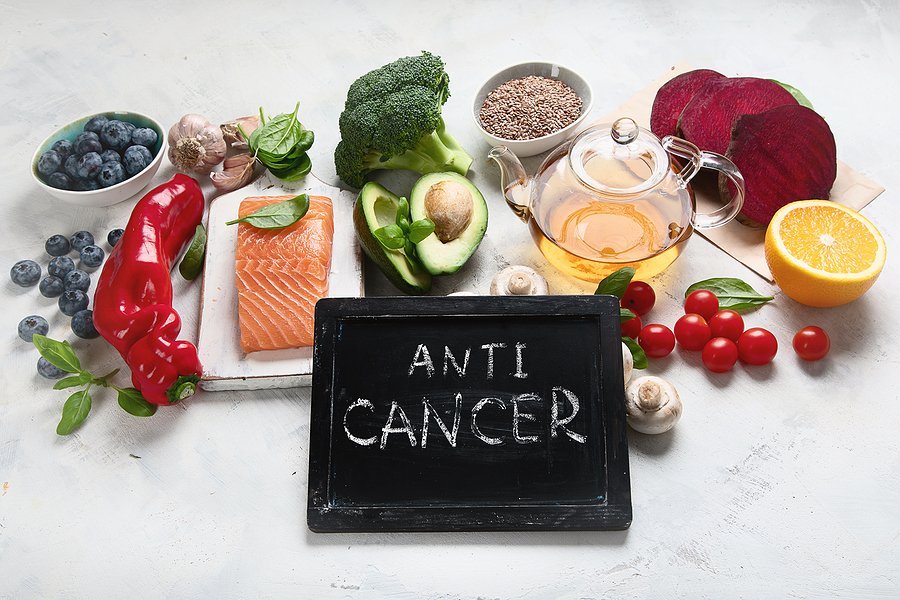Adopting a cancer-fighting diet is a crucial aspect of supporting overall health and well-being, especially for those who are undergoing cancer treatment or are at high risk. While no specific diet can cure cancer, certain foods and nutritional strategies can play a significant role in enhancing the body’s ability to fight cancer, reduce inflammation, and improve quality of life. This guide will delve into the key principles of a cancer-fighting diet, highlight beneficial foods, and provide practical tips for implementing these strategies into your daily routine.
Key Principles of a Cancer-Fighting Diet
- Focus on Nutrient-Dense Foods: Prioritize foods rich in vitamins, minerals, antioxidants, and fiber. Nutrient-dense foods support the body’s immune system and overall health.
- Reduce Inflammation: Chronic inflammation is linked to cancer progression. Incorporate anti-inflammatory foods that can help lower inflammation levels in the body.
- Limit Processed Foods and Sugars: Highly processed foods and excessive sugar intake can contribute to cancer risk and overall poor health. Aim for whole, unprocessed foods instead.
- Maintain a Healthy Weight: Achieving and maintaining a healthy weight is important for overall health and can help reduce the risk of certain cancers.

Beneficial Foods for a Cancer-Fighting Diet
- Fruits and Vegetables: These are rich in antioxidants, vitamins, and minerals. Berries, leafy greens, tomatoes, and cruciferous vegetables (like broccoli and cauliflower) are particularly beneficial. They help combat oxidative stress and inflammation.
- Whole Grains: Foods like brown rice, quinoa, and oats are high in fiber and nutrients. Whole grains support digestive health and help maintain stable blood sugar levels.
- Lean Proteins: Incorporate sources of lean protein such as fish, poultry, beans, and legumes. Proteins are essential for maintaining muscle mass and overall body repair.
- Healthy Fats: Include sources of healthy fats such as avocados, nuts, seeds, and olive oil. Omega-3 fatty acids, found in fatty fish like salmon, have anti-inflammatory properties.
- Herbs and Spices: Certain herbs and spices, like turmeric, garlic, and ginger, have been shown to have anti-cancer properties. They can enhance the flavor of foods while providing health benefits.
Practical Tips for a Cancer-Fighting Diet
- Plan Balanced Meals: Create meals that include a variety of vegetables, whole grains, and lean proteins. Balance your plate to ensure you are getting a wide range of nutrients.
- Stay Hydrated: Drink plenty of water and include hydrating foods like cucumbers and melons in your diet. Proper hydration supports overall health and well-being.
- Limit Red and Processed Meats: High consumption of red and processed meats has been linked to increased cancer risk. Opt for leaner protein sources and limit your intake of these meats.
- Prepare Meals at Home: Cooking at home allows you to control ingredients and portion sizes. Experiment with healthy recipes and try to avoid using excessive amounts of salt, sugar, or unhealthy fats.
- Monitor Portion Sizes: Eating appropriate portion sizes can help with weight management and prevent overeating. Use smaller plates and listen to your body’s hunger cues.
Common Challenges and Solutions
- Difficulty Finding Fresh Produce: If fresh produce is not readily available, consider using frozen vegetables and fruits. They can be just as nutritious and convenient.
- Taste Preferences: If certain cancer-fighting foods are not to your taste, try incorporating them into recipes where their flavor is masked by other ingredients.
- Managing Side Effects of Treatment: For those undergoing cancer treatment, nausea and changes in appetite can be challenging. Focus on small, frequent meals and choose bland, easy-to-digest foods when necessary.
Conclusion
A cancer-fighting diet plays a vital role in supporting health and well-being during and after cancer treatment. By focusing on nutrient-dense foods, reducing inflammation, and making mindful dietary choices, individuals can enhance their body’s ability to fight cancer and improve overall quality of life. Implementing these dietary strategies can lead to a healthier, more balanced lifestyle and contribute to better long-term health outcomes.

